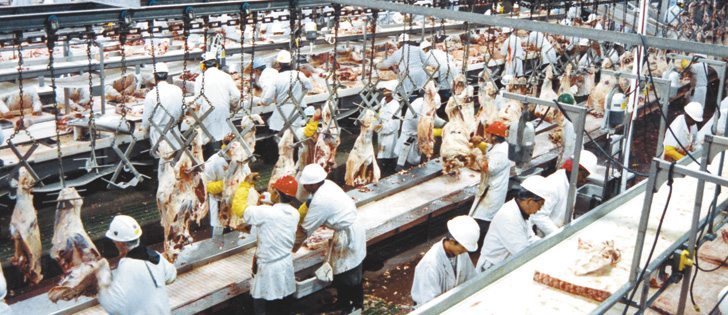When Saskatchewan pulse grower and processor Greg Simpson looks at the proposed Canada-Colombia free trade deal, he sees nothing but good things.
Canada already ships 57,000 tonnes of lentils annually to the South American country – 85 percent of their imports – and the president of Simpson Seeds Inc. of Moose Jaw sees a potential to snag some of the remaining 15 percent from the Americans if Canada ratifies the deal.
At $900 per tonne, the Colombia market is worth more than $50 million to mainly Saskatchewan producers.
Read Also

Gene editing digs deeper space in Canadian plant breeding
More Canadian research into crop variety development is incorporating gene editing, and one researcher notes that Canada’s regulatory approach to gene editing will help drive innovation
“The people of Colombia need these pulses as a source of protein,” he told MPs on the House of Commons trade committee Oct. 27.
“The employees in the processing sector need our government to enhance the trade. Finally, farmers depend on exports to Colombia to sustain one of the few profitable crops in Western Canada.”
Two days later, representatives of Grain Growers of Canada and the Canadian Pork Council were before the committee with the same message.
Martin Rice, executive secretary of the CPC, told MPs that while Canadian negotiators did not get as good a deal for the hog industry as did American negotiators, the deal still would open market opportunities for Canadian pork exports.
“Canada has witnessed increased pork exports to Colombia, more than doubling in quantity over the past 10 years and of particular interest in our quest to achieve greater value-added exports, has grown five times in value,” he said.
New opportunities
Gary Stanford, a director of GGC and a southern Alberta producer of grains, pulse crops and forages, said the Colombia deal would open important markets for pulse and special crop exporters.
Executive director Richard Phillips noted that Colombia is a major grain importer, spending $185 million to buy 360,000 tonnes of wheat and 60,000 tonnes of barley.
However, all these advocates of the Canada-Colombia deal urged MPs to act quickly to get the enabling legislation through Parliament.
If an American free trade deal with Colombia makes it through Congress first, Canadian exporters will be at a strong disadvantage, they argued.
A filibuster by NDP and Bloc Québécois MPs who object to Colombia’s human rights record has held it up for months.
Recently, New Democrat Peter Julian suggested there is little chance the delaying tactics will end soon.
But he assured the witnesses that after a trip to Washington, he is convinced Democratic opposition to the United States-Colombia deal means it will not win congressional approval.
“From the Democratic members of Congress, it is a clear no.”
Liberal Scott Brison said he recently met with U.S. secretary of state Hillary Clinton and she told him good progress is being made getting the legislation through Congress.
Rice said his Washington contacts suggest the U.S. deal could be in place by 2012.
If that happens before Canada ratifies, then American pulse exporters would have a 15 percent tariff advantage for years, Simpson told MPs.
“That would represent about $135 per tonne disadvantage for Canadian growers,” he said.
“That would result, clearly, for the U.S. lentil producers to have an advantage and would either cause Canadian growers to have to reduce production or drop our prices.”














